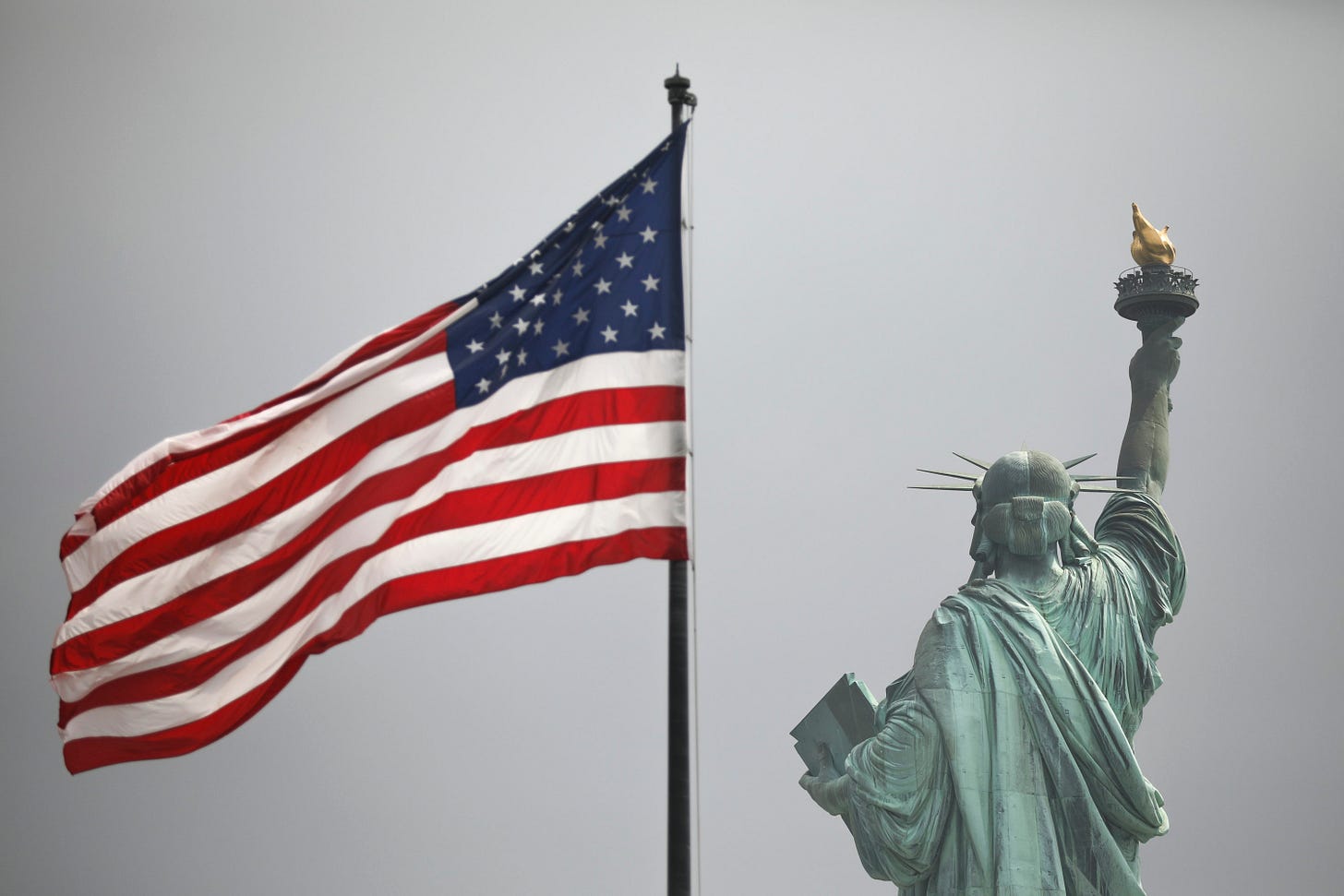How America Lost Its Moral Compass
It didn’t start with President Trump. But he embodies the cynicism that made it possible.
“The survival of liberty in our land increasingly depends on the success of liberty in other lands,” said President George W. Bush in his second inaugural address in 2005. One does not need to idolize the 43rd president to notice a contrast with President Donald Trump’s tweets praising some of the world’s worst tyrants, including China’s Xi Jinping – supposedly “a good man in a ‘tough business’.”
If the backlash against the Bush-era zeal to overthrow dictators by force is understandable, the erosion of the moral compass of U.S. foreign policy should worry Democrats and Republicans alike. Steeped heavily in America’s religious traditions, as Will Inboden of the University of Texas at Austin documented in his book, this moral compass always reflected a widely shared belief in America as a special, chosen country.
To be sure, the United States has not always lived up to that ideal. Navigating the complex reality of the Middle East, for example, often required teaming up with certain autocracies against others. Frequently, the accusations of hypocrisy and double standards were justified, as were the critiques of the hubris that led to the quagmires of Iraq and Afghanistan.
For President Trump, however, the problem is not simply that America sometimes fails to live up to its ideals—it is the ideals themselves. As early as 1987, he told CNN’s Larry King that “the world is laughing at America’s politicians.” The refrain, oft-repeated since, reflects the idea that a commitment a values-driven foreign policy as opposed to the pursuit of narrow self-interest is simply a sign of the “stupidity” of American policymakers, ruthlessly exploited by U.S. allies and partners.
What is striking is the reluctance of everybody else, Democrats and Republicans alike, to effectively defend the ideals of American global leadership. Since Senator John McCain’s passing, Republicans have lacked a voice willing to consistently defend the importance of democracy, rule of law, and self-governance in guiding U.S. foreign policy decisions – even though individual congressional decisions, including on Russia, have been mostly congruent with that view rather than with Trump’s more dismal approach.
Democrats are not faring much better. “Blame America First” has a long tradition on the left. More recently, crude foreign policy realism captured the imagination of many progressives disheartened with the costs of America’s global leadership. President Obama’s frustration with America’s allies, shared with The Atlantic’s Jeffrey Goldberg, is a close cousin of Trump’s Twitter outbursts. One should not be too surprised by the fact that George Soros is joining forces with Charles Koch, notorious for their foreign policy isolationism, in an effort to “end endless war.”*
If a rethinking of the old tenets of faith and perhaps even a renegotiation of the substance underpinning U.S. alliances is in order, forgetting everything the past has taught us about geopolitics is a mistake. Contrary to what the currently fashionable “realism” claims, a foreign policy outlook that sees governments’ behavior in the international realm as an extension of their domestic political practices is not a naïve misconception but is firmly grounded in reality. In contrast, trying to navigate global affairs while assuming that all states are essentially alike, regardless of how they are governed, is patently unrealistic. Similarly, keeping in mind only the West’s sins of commissions, while forgetting that inaction by democracies has costs too, is guaranteed to ensure the tragedies of Srebrenica, Rwanda, or Syria repeat themselves.
Furthermore, flawed as it often proved to be in practice, the U.S. commitment to “making the world safe for democracy” was not a product of misguided charity. The existence of a moral compass built around democracy, market economy, and human rights as non-negotiable features of a decent society has been integral to America’s soft power.
The shared understanding that there are right and wrong sides in certain situations, including in Hong Kong, Russia, or Hungary today, has always been a core strength of the United States, not a weakness. The question is not one of using force indiscriminately, or of “invading” Hong Kong in response to the Chinese crackdown, as Wilbur Ross disingenuously suggested, but simply of holding America’s allies and adversaries accountable for how they treat their own citizens.
Today, the United States needs a credible moral compass to counter democratic backsliding among its allies. Also, confronting and containing the totalitarian regime in China would be much easier if Washington could assert and defend the superiority of Western democracy over oriental despotism – both in rhetoric and through thoughtfully designed policies that would make it clear belonging to the community of free nations carries economic and security advantages not available to others.
Whether the moral consensus needed to do that can be brought back to life in the upcoming presidential term is an open question – and perhaps the most important foreign policy challenge of our time.
Correction, August 26, 2019: Because of an editing error, this article originally made a reference to the Koch brothers. David Koch passed away on Aug. 23.



